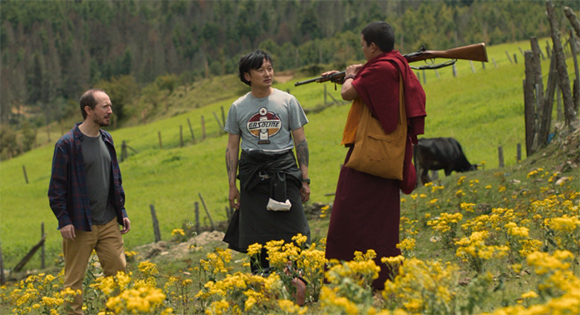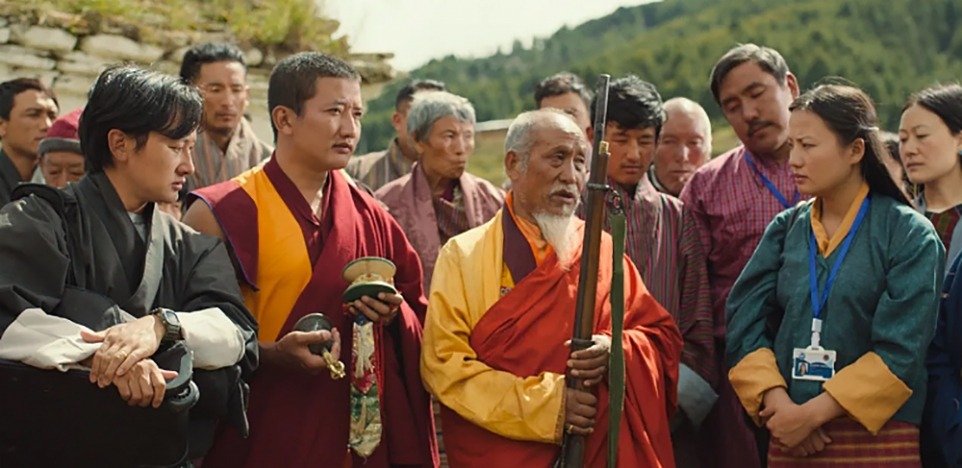It’s 2006 and changes are coming to the Himalayan country of Bhutan. The beloved king, who had earlier set a goal for high “Gross National Happiness,” has abdicated and called for democratic elections. Representatives of the election council, including Tshering (Pema Zangpo Sherpa), are sent into the countryside to educate the people on how to vote. A mock election is held with the parties being given different colors. When yellow wins overwhelmingly, the officials realize that the people have chosen the color associated with the king. Bhutan was the last country in the world to get television and Internet. It looks like establishing a workable democracy is going to take a while.
Meanwhile, an elderly lama (Kelsang Choejey, an actual Buddhist lama) is preparing for the Full Moon Ceremony. Hearing of the upcoming elections, he says, “Things need to be made right.” He then asks a young monk, Tashi (Tandin Wangchuk), to get him two guns.

This is not an easy assignment. Going door to door, Tashi discovers that many of the villagers have never even seen a gun. When he finally finds one, he learns that it is a rare rifle from the U.S. Civil War also being sought by an American collector, Ronald Colman (Harry Einhorn). Through his Bhutanese guide Benji (Tandin Sonam), he offers to get the lama some AK47s in exchange for the rifle. But Tashi takes the gun to the lama. What will he do with it?
Director Pawo Coyning Dorji gave us Lunana: A Yak in the Classroom,, which was nominated for the Best International Film Oscar in 2022. It also focused on changes coming to Bhutan through the story of a young teacher sent to a remote village. He discovers that happiness does not come through Western things like his cell phone; instead it derives from heart connections and music.
A Monk and a Gun also contrasts the Bhutanese way of life with Western ways and obsessions. The Bhutanese villagers are not even convinced that democracy is a good thing if it pits neighbor against neighbor. Will it bring happiness? One woman replies, “We were already happy.”
The title itself conveys the key contrast. Dorji makes one gun stand in for the West’s (and especially the United States’s) obsession with guns, money, and the power derived from possession of them. But the Buddhist lama shows us a different perspective that comes from putting a monk and a gun together.
